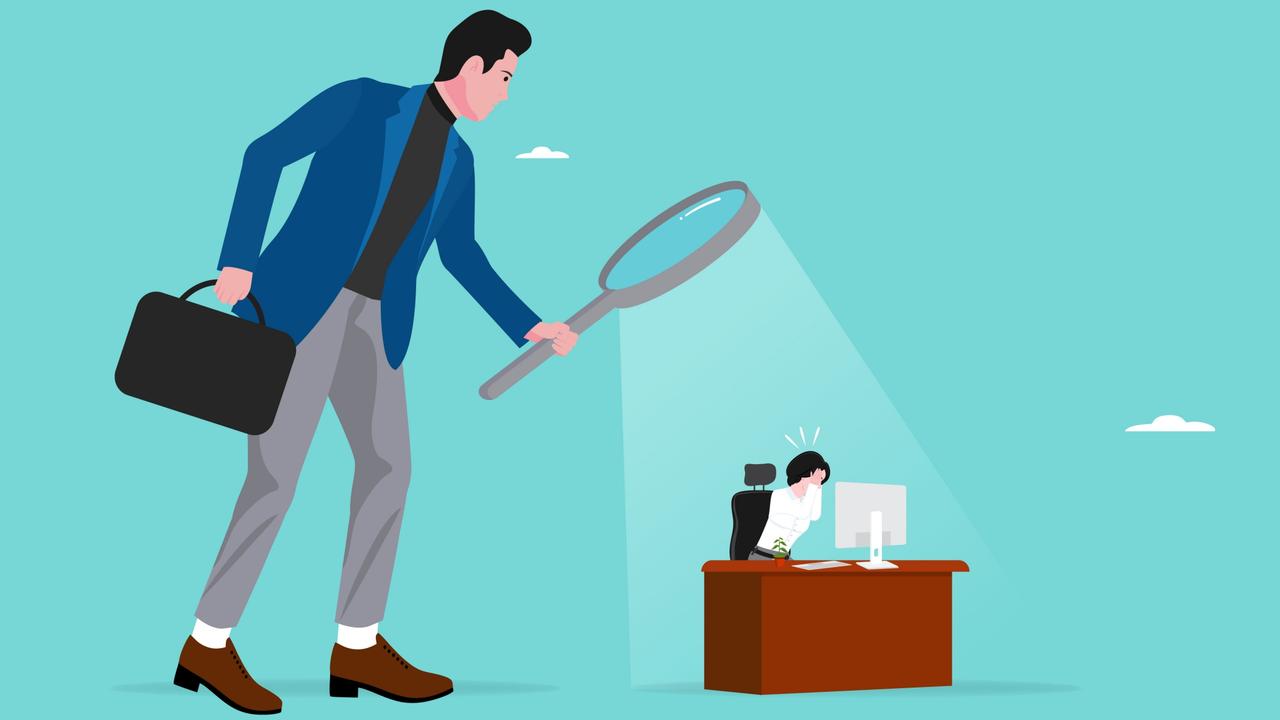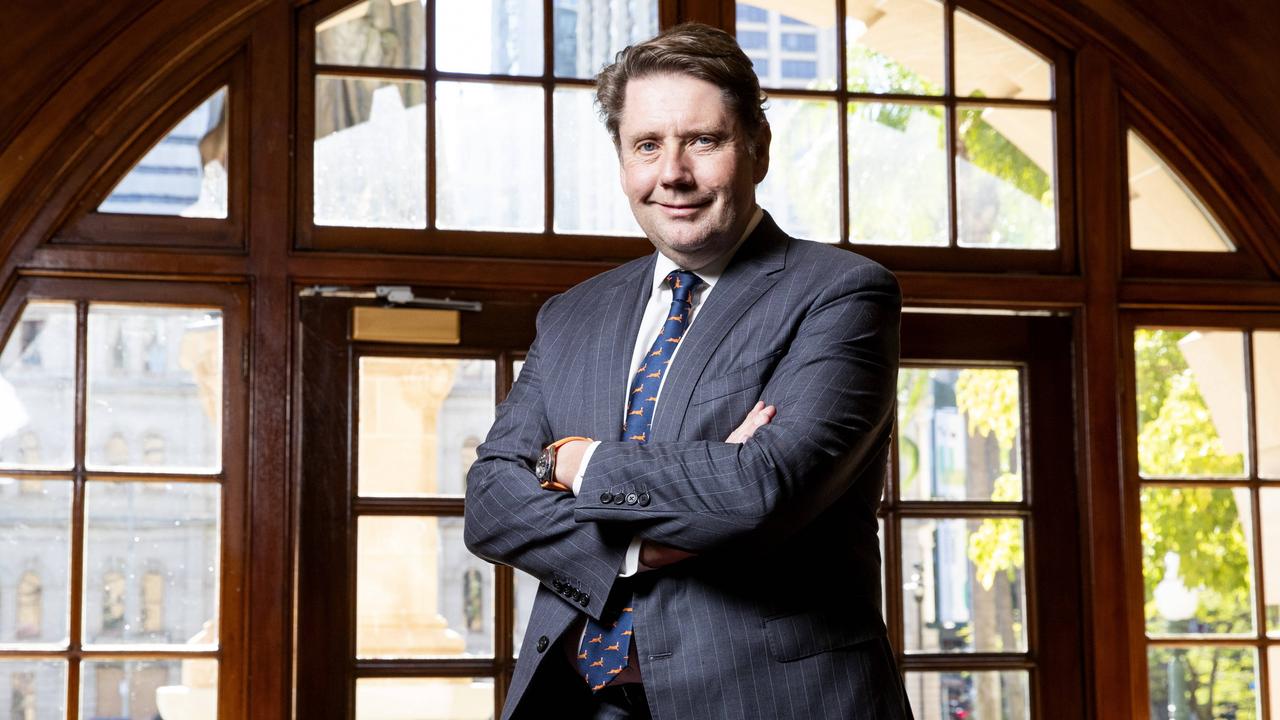Don’t interfere with the AI revolution, Microsoft Australia and NZ chief warns
Microsoft Australia and New Zealand chief Steven Worrall says the AI revolution is here and should be embraced
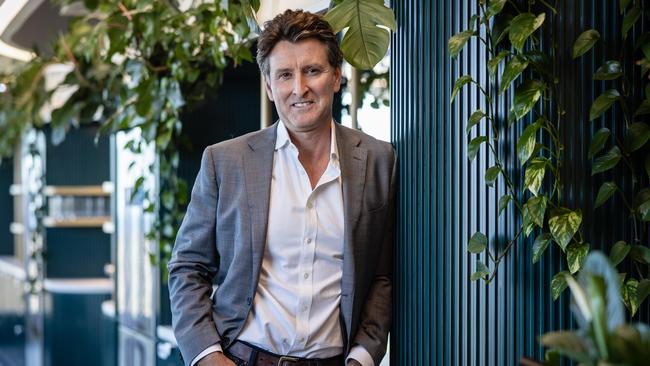
Microsoft Australia and New Zealand chief executive Steven Worrall has urged Australians to embrace the artificial intelligence revolution, amid moves to ban from schools and universities new online tools that mimic human writing and learning.
Earlier this year Victoria became the latest state in the country to ban OpenAI’s ChatGPT at public schools after similar announcements from education departments in NSW, South Australia, Queensland, Tasmania and, Western Australia.
In response to a prompt, the online tool generates text such as articles, essays, jokes and even poetry, and has gained wide popularity since its debut in November. It now has 100 million users – the fastest take-up of any online tool in history.
While Mr Worrall did not directly criticise the government moves, he said Australians were faced with a critical choice.
“This wave is not one that you can say we‘re choosing to participate in or we are not. These are fundamental shifts in how the world is going to operate and I think the question then becomes for Australia, where do we want to be? Do we want to ride that wave? Do we want to leverage it and how do we want to do that? Let’s get to work,” he said in an interview with The Australian to mark Microsoft’s 40th birthday in Australia.
Key focus areas for Microsoft Australia in the year ahead include its AI strategy, powering modern work and building an innovative cloud platform.
Last month it globally announced that it was developing Microsoft 365 Copilot – its answer to high-functioning chatbots like ChatGPT.
It is a new assistant powered by artificial intelligence to help boost productivity across Microsoft 365 apps.
Copilot is currently in development with a very small group of commercial customers and its rollout will son start globally.
“We are at a pivotal moment,” Mr Worrall said. “We can now achieve things that we weren’t able to achieve before, and then what we’re going to see also is how do you use it.
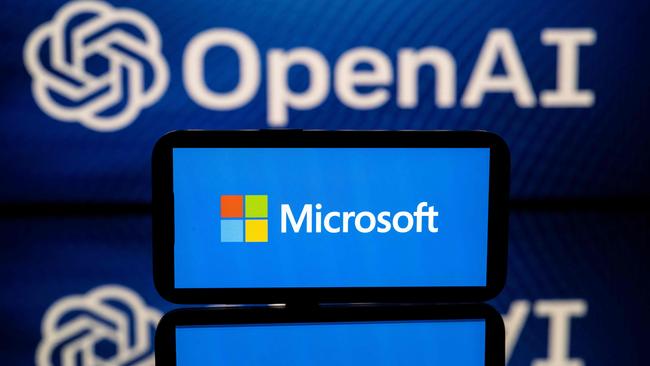
“This is where copilots come to the forefront of the story. Copilot for us is simply the interface that makes this new technology accessible. It will guide you.”
He said Microsoft was deeply involved in the discussion about the implications of the AI revolution for employment. Mr Worrall was recently in Canberra meeting with senior members of the federal government to discuss their concerns.
Globally there has been speculation that governments would introduce levies on tech companies to fund minimum wage payments for workers left unemployed when their jobs are replaced by robots or other advanced forms of technology; especially those doing replica-table, repetitive tasks.
“So how do we ensure this technology is used in a way that moves us forward as a nation because quite legitimately, there are a lot of questions out there. Many ask ‘Will this just replace me or enable my company to do more with less’?” Mr Worrall said.
“Microsoft has to do a much better job as we go forward of ensuring we address that concern.”
“We’ve known this moment has been coming and we’ve been working on it for years, and we have been working with governments all around the around the world, including the Australian government.
“We have confidence that we’ve got the framework in place to have a sophisticated and mature discussion about the implications of the use of this technology and how we might then, as a nation, put it to use in the most effective way.”
Mr Worrall said the proof of the opportunity would be in the pudding of putting the technology to work.
“We are saying ‘Put it to work’. Put it into the hands of Australians – Here it is, you trial it, you tell us,” he said.
Microsoft is heavily focused on using artificial intelligence to accelerate the identification of cybersecurity threats and is working with public corporations, state governments and their instrumentalities on the issue.
It now has an AI co-pilot for its security platform.
“There is no doubt much more needs to be done in terms of rigour and governance,” Mr Worrall said, noting that in some companies “protections and disciplines in place are not as robust as they should be” which was the responsibility of management teams and boards to address.
In October last year Microsoft was again accused of using aggressive methods to minimise the amount of tax it pays to support public services.
A global report from the Centre for International Corporate Tax Accountability and Research (CICTAR) claimed that while the tech company’s global profit margin was 42.3 per cent last year, it was only 4.5 per cent in Australia. The report claimed the company was using complex – but legal — methods to shift money and minimise tax.
The Albanese government has made stopping multinationals profit shifting a focus of its first term.
“Of course we comply with every local law and national law that is in place and it is absolutely fair and reasonable than any sovereign nation should consider these sorts of issues over time, given the changes we are seeing around us,” Mr Worrall said in response.
“You can expect that Microsoft will comply with every law and regulation as it evolves.”
Mr Worrall has long told his staff, friends and the wider world that his personal mission statement is “love, loyalty and others”.
But until now, he has never shared the reason why.
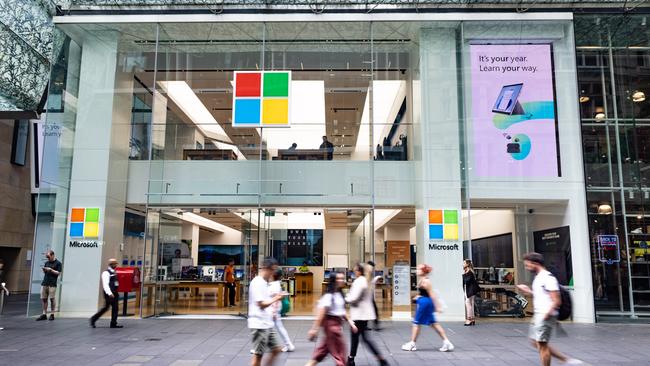
In 2021, he lost his mother after her seven-year battle with dementia. The grandmother of nine had five family members affected by the debilitating and terminal condition.
Almost two decades earlier, at the age of 63, she made national headlines when she ran from Gosford to Sydney and then a year later from Sydney to Canberra to raise funds for the care and cure of dementia during Dementia Awareness Week.
“Dementia is a shocking disease, but the connection between mental health, cognitive decline, Alzheimer’s and those sorts of diseases, there is a parallel there and a connection and it just goes to the heart of living a healthy life, and also living a balanced life where you are thinking about both physical and mental,” Mr Worrall said
“It was her greatest fear that she would end up with Alzheimer’s. Everyone loves their mother and she was one of those people in life that just gave to other people. So her example still inspires me today.”
In addition to his full-time role at Microsoft, Mr Worrall was the founding chair of the Corporate Mental Health Alliance in Australia.
He is also a founding member of the Australian Climate Leaders Coalition, chair of the New South Wales Skills Board and the Microsoft Global Indigenous Employee Resource Group executive co-sponsor.
“I’ve had the privilege of leading Microsoft for almost seven years and the mission sort of intersects with my personal purpose, which is how do I play a role to contribute to others,” he said.
“They don’t show up on a balance sheet or a P&L, but it’s stuff that gets me out of bed and will get me out of bed every day because it’s stuff that matters.”
While he won’t go into the specifics because they are intensely private, he revealed publicly for the first time an episode in his life just before he became a teenager which shaped his want for his corporate life to have a bigger purpose.
Mr Worrall has three children – two are at university and one is at school.
“My mother suffered trauma early in her life and had challenges with her mental health for many, many years,” he said.
“So that kicked off an interest and a passion in me in terms of this combination between physical health and mental health.
“At one point there was a moment that involved my brother. It was a powerful learning moment, if you will, where the lesson essentially boiled down to when you’re trying to deal with your own challenges – mental or physical. The best way to address those is to help someone help someone else,” he says cryptically.
“I don’t think I really, truly appreciated the nature of the trauma that my mother experienced until much later in my life. Now, looking back at the lesson, that’s where it came.
“It was embedded in me at that age. I don’t think I could have articulated it for the next 10 to 15 years. I’ve been very fortunate to be at Microsoft and to have found a way of channelling, representing and hopefully honouring that.”
Mr Worrall became the local managing director in January 2017 and since then the business has more than doubled in size. Local annual revenue is now $6.3bn, up from $2.3bn six years ago.
He joined Microsoft in March 2014 as director, Enterprise and Partner Group, responsible for driving business growth and building strong customer and partner relationships in the Australian commercial and public sector markets.
He had previously worked for IBM for 22 years and held a number of marketing, sales and general management roles in the services, software and financing segments of the group.
Mr Worrall said one of his greatest passions over six years working for Microsoft had been driving the group’s investment in education.
Microsoft has supported the NSW government to build a new digital technology applied learning institute in Sydney with the help of TAFE NSW, Macquarie University and UTS.
“Over time it is going to educate hundreds of thousands of people to re-skill and hopefully either take a new role in the tech industry or get into the tech industry coming out of some other industry,” he said.
“That’s at the heart of what Microsoft in Australia has been focused on enabling Australians to profit from new technology.”


